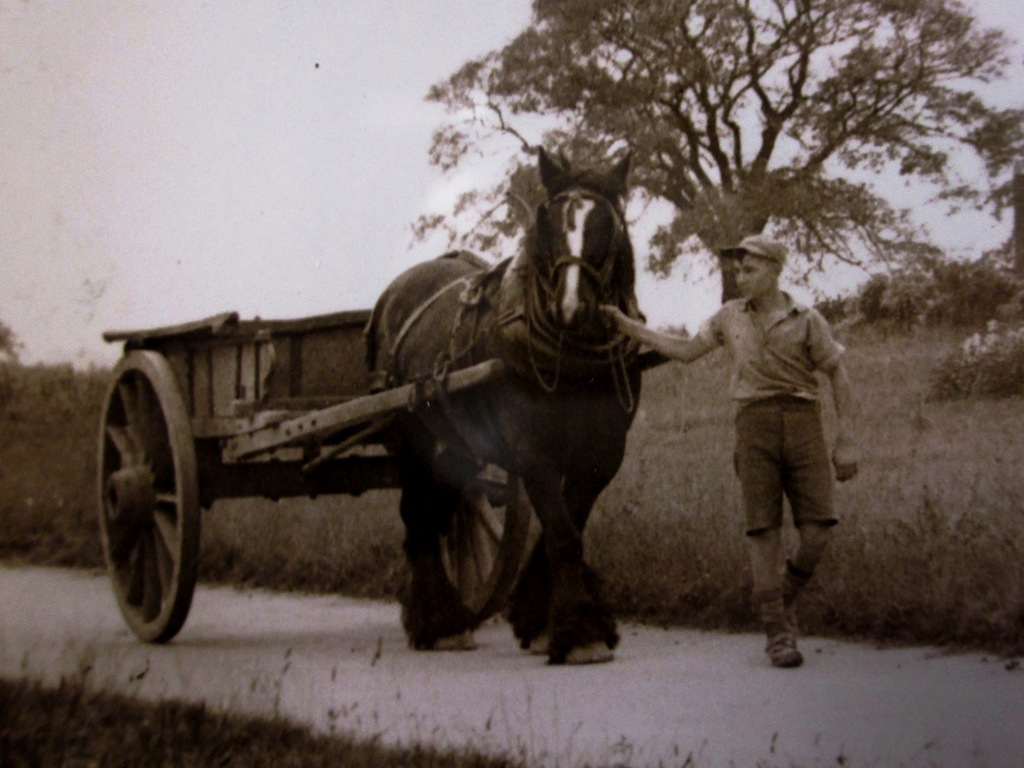
A boy who has found a horse. Document reference: CN 8/1/37 (detail)
My inspiration for today’s blog post comes from two things that stuck in my head when I read them. The first is a pearl of wisdom from the fictional detective Miss Marple, which I will quote later. The second is a recent comment made in response to a colleague’s post on this blog: ‘how can you research a record or collection if you do not know it exists?’
The trivial answer to this question is, of course, that you can’t. It does, however, prompt another, more complicated question: how can you find archival sources that are relevant for your research?
In previous blog posts, I’ve given some hints on how to get started and noted some attributes of really successful researchers. For this post, I’ve decided to offer a brief outline of three different ways of locating and identifying interesting records: serendipity, ‘brute force’ and archival logic. In practice, most people’s experience of using archives tends to involve some combination of these three.
Serendipity
Sometimes researchers find something of interest to them by chance or when they were looking for something different. For instance, you might see an episode of Who Do You Think You Are? featuring a source that seems relevant to your current research, or when you’re looking for one thing within a record something else on the same page might catch your eye.
Although serendipitous finds can sometimes have a significant impact on research progress, it goes without saying that you can’t rely on chance discoveries as your main research strategy.
Brute force
Like many public facing archivists, I spend quite roughly equal amounts of time convincing would-be researchers of two important truths:
- You can’t find everything just by typing a couple of keywords into a search box.
- If you type a couple of keywords into a search box you might actually find something.
I tend to refer to keyword searching as a ‘brute force’ technique because it’s often crude but effective. A less harsh description for this method would be ‘matchmaking’: the search engine finds results that match your chosen criteria.
Nowadays, there are many different online search tools to help you find archival records. Not only do many archives have their own online catalogues, but there are also several popular websites that act as shared catalogues for various archives in the UK:
- The National Archives’ own Discovery service 1
- AIM25
- Archives Hub
- Archives Wales
- Scottish Archive Network
Whichever search tool you are using, remember that it will work on the principle of ‘garbage in, garbage out’. Successful researchers tend to think carefully before they type and apply a ‘common sense’ check to their search results. 2
Archival logic

Another boy with a horse. Document reference: WORK 25/209 folio 92 (detail)
Sometimes, finding what you need involves a kind of mental ‘translation’ process. Normally, archival records are grouped together because they have a common origin rather than a common subject matter. One practical effect of this is that users of archives often find it helpful to think about who in the past might have made or used records about the subjects, places, people or institutions that they want to research.
Although I’ve labelled this kind of thought process ‘archival logic’, it tends to involve a bit of historical knowledge, lateral thinking and imagination, as well as logic. My other name for it is ‘the boy-who-found-the-horse method’. This is where Miss Marple comes in:
‘My own process of reasoning was not really original,’ said Miss Marple. ‘It’s all in Mark Twain. The boy who found the horse. He just imagined where he would go if he were a horse and he went there and there was the horse.’ 3
Suppose, for instance, that you wanted to research poverty in late nineteenth-century Borsetshire. 4 One way of approaching this topic would be to think about circumstances that can be related to poverty and look for records about them. For instance:
- Forms of welfare provision, such as workhouses
- Bankruptcy and debt
- Petty crime
- Ill-health caused by bad diet, poor living conditions or inadequate medical care
This is not an exhaustive list of possibilities, of course, just a few ideas. 5
Using archival logic is not always easy, particularly for new researchers. In many cases, it can help to read one of our research guides 6, look at another trustworthy website, or perhaps even find a couple of relevant books.
Before online searching was possible, researchers often had to rely quite heavily on archival logic to find any records at all. Nowadays, experienced researchers tend to combine brute force searching with archival logic in different ways to suit their topics.
One way to incorporate archival logic into your search technique when using our Discovery catalogue is to use the ‘department’ filters. These allow you to pick out the search results from the government bodies that you think are most likely to have produced relevant records.
Another useful technique can be to let archival logic inform the keywords that you put into the search box. Sticking with our poverty example, instead of just searching for poverty in Borsetshire, you might try other combinations, such as (Borchester OR Felpersham) AND (workhouse OR “poor law”). 7
If you have an effective search technique that you’d like to share, or a story about how lateral thinking, sudden insight or a chance discovery has helped your research, why not leave a comment below?
Note: This blog post was original published on 26 November 2012. It was updated on 11 July 2018 to correct out-of-date information and broken links.
Notes:
- This incorporates data from the former Access to Archives service and the National Register of Archives, as well as the Manorial Documents Register. ↩
- For instance, is that ‘plan’ mentioned in a catalogue entry an architect’s plan or a cunning plan? ↩
- Agatha Christie, 4.50 From Paddington (London, 1957), chapter 10 ↩
- As you may have spotted, Borsetshire is a fictitious English county. ↩
- I’m not an expert in this topic. In fact, I chose it partly because I don’t know very much about it. ↩
- For instance, anyone interested in poverty during the Victorian period may find the guide to Poverty and the Poor Laws useful. ↩
- If you aren’t familiar with using ANDs and ORs when searching online, take a look at this webpage on Boolean searching. ↩

There are the uncatalogued records (about 1/4 million of them) like the Treasury Board records (T 1) at The National Archives (TNA) and have a look at the T 108 Subject Registers as it covers virtually everything and even Charles Darwin (try the Darwin correspondence online database to find the records) and David Livingstone are not fully indexed. Go back and look again in a few months as the series of records may have been indexed/digitised and in particular the Personal Name Indexes at local record offices that are not online.
Think about wars and in particular rebellions, for example any Scottish records in the 18th century may be included in the Jacobite Rebellion records or in the Peasants’ Revolt and don’t assume that a term you use is the same as the ones used in that period so try and think about how the people at the time may have thought. Look at such issues as ‘lunacy’ nowadays called mental illness and the various institutions and also medical problems such as contagious diseases and TB and the institution of isolation hospitals.
If you are interested in an area look at the published Victorian County History which includes names, but don’t assume everything is correct , they got two of my ancestors of the same name mixed up even though one had his will proved a few years earlier, i.e he was dead and not living!.
Thank you, David.
As you mention, Treasury records are not easy to search or use but they are an excellent example of how experienced researchers can make archival logic work for them. If a research topic involves both the government and money (which a huge range of subjects do), it will be worth thinking about whether Treasury records could be useful.
I hope that the Victorian County History mentioned might prove useful. This is my first search for ANYthing and so far I’ve drawn a blank! I just want to start by seeing if where I was born, Ide in Devon, is in the Doomesday book, or somewhere early, so I know the beginning of it’s history. Then the house where I was born… I am sure it all ‘grows’ as one looks.
Thank you for clear writing.